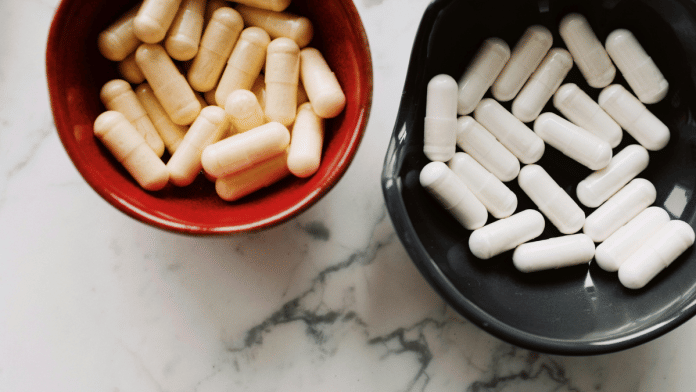New Delhi: Over 19 percent of ads that violated the advertisement norms in 2023-24 were from the healthcare sector, according to the annual complaint report by the Advertising Standards Council of India (ASCI).
Of the 8,229 total ads across platforms such as television, print, digital media and over-the-top (OTT) media services which were found violative and scrutinised by the advertising watchdog in the last financial year, 1,569 were in the healthcare sector, followed by betting ads.
Within the healthcare sector, 1,249 ads were in direct violation of The Drugs and Magic Remedies (Objectionable Advertisements) Act, 1954 which prohibits advertisements of drugs and remedies that claim to have magical properties, and makes doing so a cognizable offence.
Nearly 86 percent of the drugs found illegal in the healthcare sector were on digital platforms, shows the report released Wednesday.
Most of these were website advertisements (from marketplaces) and 91 percent of them were in violation of clause 3(b) which related to maintenance and enhancement of sexual prowess, ASCI has noted, adding that 239 of these ads were reported to the Union ministry of AYUSH (traditional medicine) for further action.
“Despite the presence of the DMR Act, there continues to be a proliferation of advertisers promoting medicines/ayurvedic products, claiming the cure and treatment of these ailments. These advertisements misuse the trust of vulnerable consumers and could be detrimental to their health,” the report said.
The findings come at a time when observations made by the Supreme Court in a case related to false and misleading ads by the Ramdev-led Patanjali Ayurved have been hitting the headlines.
The SC had pulled up Patanjali and Ramdev while hearing a petition filed by the Indian Medical Association (IMA) — the largest body of doctors in India — which said that the conglomerate, through repeated advertisements, had been disparaging allopathy while offering “a permanent solution for lifestyle disorders, incurable, chronic and genetic diseases”.
ThePrint reached out to AYUSH secretary Rajesh Kotecha over phone calls to understand what had been done in case of ads that were found violative of the DMR Act. This report will be updated if and when a response is received.
ASCI chief executive officer and secretary general Manisha Kapoor pointed out that sectors like healthcare emerging at the top of violations are a significant concern for all citizens. “With the highest number of violative ads seen online, advertisers and platforms must work more closely with regulators and self-regulators to keep consumers protected,” she added.
Some doctors and activists, who have been crusading against misleading advertisements by AYUSH drugmakers, said the findings in the report were “hardly surprising”.
“Unfortunately, the regulatory bodies like state licensing authorities, Central Consumer Protection Authority, and Press Council of India have been sitting on the complaints. That is exactly the reason for mushrooming of illegal ads,” Kerala-based ophthalmologist Dr K. V. Babu told ThePrint. “Our only hope now is that the ongoing intervention by the SC will put an end to illegal ads in the healthcare sector which directly impacts millions of lives.”
Dr Babu has been seeking the Centre’s intervention in strengthening the DMR Act.
Also Read: Self-declare that ads conform to laws — SC to broadcasters & print media during Patanjali hearing
‘Sector with consistent concern’
The ASCI annual report said that over the years at the Council, healthcare has been a sector of concern with regards to misleading advertisements.
“In an era where healthcare choices are abundant and information is readily accessible, it is crucial to acknowledge the potential harm caused by misleading ads that abuse the trust of consumers and take advantage of their vulnerability,” it noted.
The ASCI looked at a total of 1,575 ads out of which 99 percent required modification; while 1,249 ads were processed for violating the DMR Act. From the remaining 326 ads, 190 were from clinics, hospitals or wellness centres making misleading claims about their services, care and cure to chronic conditions.
The illegal ads also comprised 129 from pharma companies for drugs and medicines with claims around prevention and cure, superior quality and leadership, according to the report.
A senior IMA member pointed out that while the DMR Act encompasses the provisions for prohibition of misleading advertisements and exaggerated claims of drugs and medicinal substances, including Ayurvedic, Siddha and Unani medicines, the provisions are rarely enforced in reality. Cases, the IMA member said, drag for years when they reach courts .
Dr Babu said that a positive step to curb misleading ads was initiated in 2018 when following instructions from a parliamentary standing committee on health, the government notified an amendment to insert Rule 170, specifically for controlling inappropriate advertisements of Ayurvedic, Siddha and Unani medicines, in the Drugs & Cosmetics Rules.
The Centre mandated that in case of advertisements for AYUSH drugs, their makers would need prior permission from state licensing authorities. The rule would have also empowered state governments to “enter, search any premises or examine or seize any record which contravenes any provisions of the Act related to alleged misleading or improper advertisements”.
But, the provision was never implemented as the traditional drugmakers challenged it in the Bombay High Court, which stayed its operation.
This year, the Centre then repealed the amendment made to the Act. In response to a Right to Information (RTI) query by Dr Babu, the government cited a recommendation by a panel under the apex drug regulator, Central Drugs Standard Control Organisation, as the reason for repealing the amendment.
(Edited by Tony Rai)






